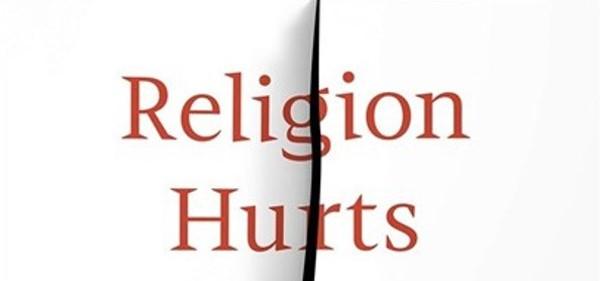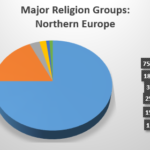Healing from Religious Trauma: Guidance, Resources, and Steps for Moving Forward

Understanding Religious Trauma and Its Impact
Religious trauma is a form of psychological and emotional distress that can result from experiences within high-control or authoritarian religious environments. People impacted may struggle with anxiety, guilt, shame, confusion, and a loss of trust in themselves or others. Dr. Laura E. Anderson’s work, particularly her book “When Religion Hurts You: Healing from Religious Trauma and the Impact of High-Control Religion,” provides a comprehensive look at how such trauma can manifest and the steps individuals can take to recover [4] .
Many individuals raised in or exposed to high-control religious groups encounter pressures to conform, fear-based teachings, and rigid belief systems. These factors can contribute to long-term mental health issues, such as depression, chronic anxiety, and post-traumatic stress symptoms. The process of questioning and healing from such environments often requires a multifaceted approach, including education, self-compassion, and support from trauma-informed professionals [3] .
Recognizing the Signs of Religious Trauma
Common signs of religious trauma include:
- Persistent feelings of guilt, shame, or fear related to religious beliefs or practices.
- Difficulty making decisions independently of past religious authority.
- Mistrust of self or others, especially regarding values and moral judgments.
- Flashbacks, nightmares, or intrusive memories connected to religious experiences.
- Social isolation or difficulty engaging with communities due to past religious harm.
If you identify with these symptoms, it’s important to recognize they are valid responses to high-control environments and not personal failings. Acknowledging the impact of religious trauma is the first step toward healing [4] .
Steps for Healing and Recovery
Dr. Anderson outlines a multi-step approach for recovery from religious trauma:
1. Education and Awareness
Learning about religious trauma helps validate your experience and provides language for what you’ve gone through. Dr. Anderson’s work, as well as other trauma-informed literature, can be found at libraries or online platforms such as OverDrive [4] . Understanding the dynamics of high-control religion enables individuals to identify manipulation and coercive tactics, making it easier to establish new, healthy boundaries.
2. Connecting with Supportive Communities
Recovery often benefits from connecting with others who have had similar experiences. Peer support groups, both online and in-person, provide spaces to share stories and receive empathy. While there is no central directory for such groups, you may find them through mental health organizations, religious trauma support forums, or by searching “religious trauma support group” in your area.
3. Seeking Professional Help
Not all therapists are trained in religious trauma. When searching for a professional, look for those who are trauma-informed and, where possible, have experience dealing with religious or spiritual abuse. To find such a therapist, you can search for “trauma-informed therapist” or “religious trauma therapist” in your region. Consider using reputable directories like Psychology Today or the American Psychological Association for verified professionals.
4. Reclaiming Personal Agency
One of the core harms of high-control religion is the undermining of personal agency. Recovery involves gradually learning to trust your instincts and make decisions that align with your values. This may involve guided journaling, mindfulness practices, or exercises recommended in Dr. Anderson’s book, such as learning to recognize and challenge internalized scripts from past religious teaching [3] .

Source: thestudyaide.blogspot.com
5. Exploring New Beliefs and Practices
Healing does not require abandoning all forms of spirituality. For some, exploring new or reimagined belief systems, secular communities, or personal rituals can be empowering. Consider reading widely and engaging with resources that encourage critical thinking and personal growth. Libraries and reputable online platforms are good starting points.
Accessing Resources: Verified Guidance and Alternatives
The phrase “when religion hurts you pdf” implies the search for accessible resources, possibly free downloads or full text. While some websites may offer PDF versions of Dr. Anderson’s book, it is important to ensure these are legitimate and respect copyright laws. The most trustworthy ways to access the book or its summaries are:
- Borrowing a digital copy through your public library’s OverDrive or Libby platform [4] .
- Exploring authorized educational summaries, such as those provided by Bookey, which offer key insights from the book [3] .
- Purchasing or renting the official ebook from established platforms like Perlego [5] .
If you are unable to access the book due to cost or availability, consider searching for interviews, podcasts, or articles by Dr. Laura E. Anderson, which often address many key concepts from the text.
Protecting Yourself from Unverified or Unethical Sources
When searching for mental health resources or book downloads, be cautious about unofficial sites that may offer pirated or unsafe PDFs. These sources can pose legal or cybersecurity risks. Instead, prioritize:
- Using your local library’s digital lending service.
- Exploring summaries or excerpts from reputable educational platforms.
- Contacting your local mental health clinic for recommended reading or support groups.
If you need specific guidance or have trouble finding resources, reach out to a local librarian or mental health professional. Many libraries can request books on your behalf or recommend similar titles.
Practical Application: Building a Personal Recovery Plan
To create a personalized recovery plan, start by identifying your specific needs-are you looking for community, education, therapy, or spiritual alternatives? Set achievable goals, such as attending a support group, reading a chapter per week from a recommended text, or scheduling a consultation with a trauma-informed therapist. Keep a journal to track your progress and reflections.
Example: Jane, a former member of a high-control group, began her recovery by borrowing Dr. Anderson’s book through her library’s e-lending platform. She joined an online support forum, scheduled weekly sessions with a therapist specializing in religious trauma, and started practicing mindfulness-based stress reduction techniques. Over several months, she noticed increased confidence in her choices and a gradual reduction in anxiety.
Alternative Approaches and Additional Considerations
There is no single path to recovery. Some individuals may find meaning in reconnecting with a different faith community, while others embrace secular or humanist perspectives. It’s important to respect your own pace and boundaries during this process.
If you feel unsafe or overwhelmed, prioritize crisis support. In the U.S., you can contact the National Alliance on Mental Illness (NAMI) Helpline or other local mental health crisis resources. For non-emergency support, many organizations provide free or low-cost counseling, and your primary care provider can often refer you to appropriate specialists.

Source: discover.hubpages.com
Summary: Moving Forward With Support and Self-Compassion
Healing from religious trauma is a journey that involves education, connection, self-advocacy, and the gradual rebuilding of trust in oneself. Dr. Laura E. Anderson’s “When Religion Hurts You” offers a roadmap for this process, but additional support is available through libraries, professional therapists, and peer communities. Always choose verified, reputable sources for both information and support, and remember that recovery is possible at your own pace.
References
- [1] Louisville Free Public Library (2023). “When Religion Hurts You” by Laura E. Anderson – eBook and audiobook lending platform.
- [2] Bookey (2023). Summary PDF of “When Religion Hurts You” – Key insights and practical steps.
- [3] Perlego (2023). Official eBook rental/purchase for “When Religion Hurts You.”






